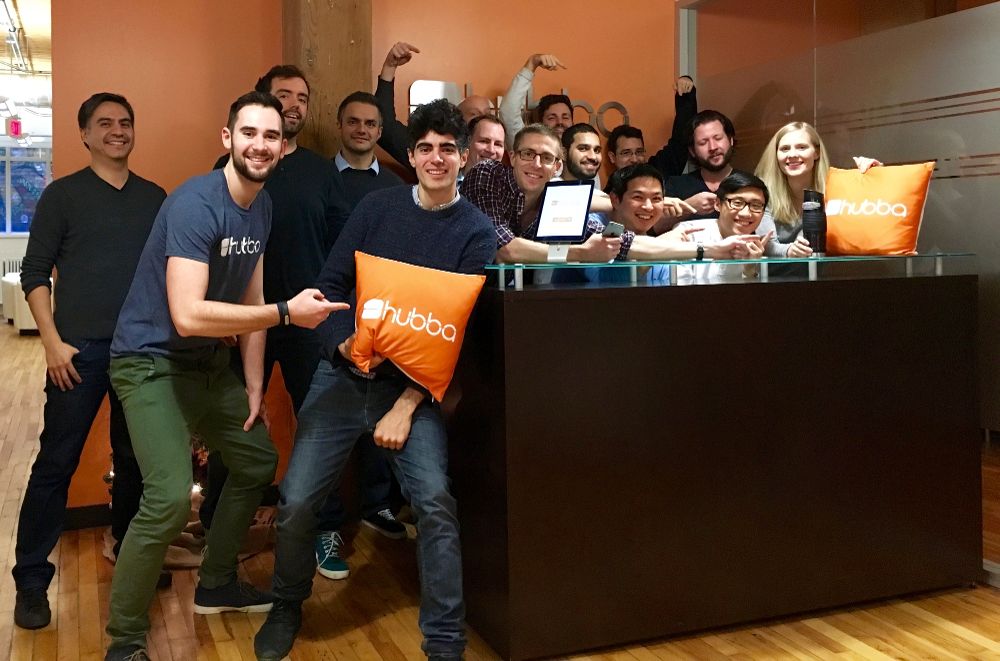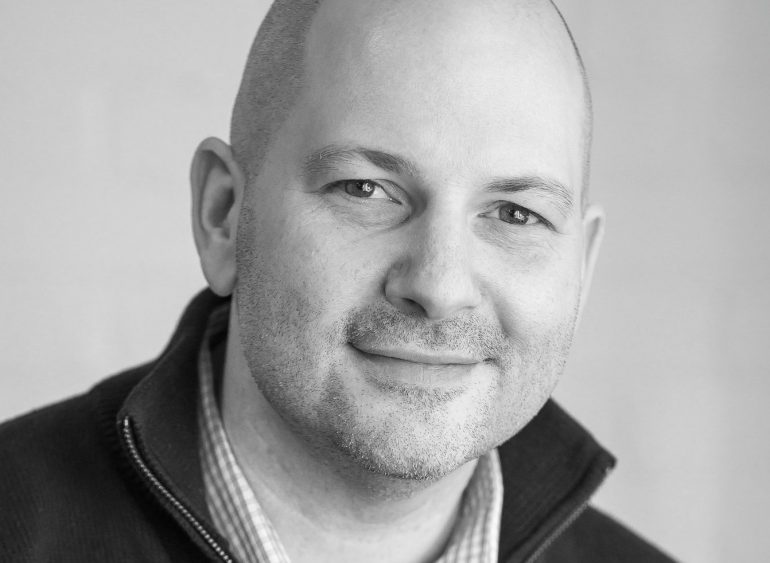Since Toronto-based Hubba founder Ben Zifkin launched his company in 2012, the plan has always been to IPO in 2020. In fact, he specifically came back to Toronto after spending four years in London, calling the lack of a strong IPO story in Toronto “embarrassing.”
“I came back here specifically to build a large, global institutional tech company,” said Zifkin. To support his vision, Zifkin funded the startup out of his own pocket thanks to the acquisition of his prior company. Hubba would go on to raise a $3.1 million seed round in 2014, followed by an $11 million Series A in October 2015.
Now, Hubba is announcing another investment that Zifkin said will light the fuse towards its ambitious IPO plans. The company has raised its Series B in a round led by Goldman Sachs’ VC Fund. Zifkin said that what makes this round especially noteworthy is the fact that it’s the first Canadian company to receive an investment from this fund, and the 12th company overall. The fund has invested in companies like Facebook, Spotify, and Pinterest in the past.
“It’s the opposite of a lean startup — this isn’t like ‘let’s build a speedboat, put more horsepower on it, and get more and more.’ We’re going to build a fucking supertanker.”
Zifkin declined to confirm the amount that Goldman Sachs invested in the company (similarly, when Financeit raised funding from Goldman Sachs’ merchant banking division, they also declined to share how much they raised). However, in January, Zifkin told The Wall Street Journal that it was on its way to raising $45 million this year.
“They’re connected with every major retailer and every single brand. Everybody uses Goldman Sachs, and they’ve got connections to everybody, both in different industries and geographically,” said Zifkin.
The company plans to use the funding to develop more features within the platform, and expand beyond Canadian borders into markets like the UK, which Zifkin said has a strong retail culture that’s been especially active within Hubba. Currently, Hubba has about 50 people on its team, and has 40,000 companies signed on to the platform. Zifkin said that in the last 16 weeks, 100,000 retailers and brands have connected through Hubba.
Zifkin credits Hubba’s ability to attract the attention of Goldman Sachs to his calculated, long-term approach to building Hubba, which Zifkin thinks can take over its market in a few ways.
Put simply, Hubba’s platform provides one destination for brands, distributors, vendors, and retailers to manage and share all information related to a product, including descriptions, photos, customer reviews from mediums like YouTube, and marketing assets. For brand managers working with retailers distributing their products, it can be difficult to keep up with several retailers expecting different file types in different formats; Hubba, then, can act like a Dropbox where all information is available in one place.
It’s this aspect of the product that Zifkin initially focused on in order to attract users to the platform, rather than building one fully-defined product and expecting companies to sign up.
“We said, ‘we may take a year or two just to focus on acquisition.’ I don’t care what they do at Hubba, I don’t care if they come back, but I just wanna get them in. Let’s see if we can get them in and we’ll optimize that,” said Zifkin.

“It’s the opposite of a lean startup — this isn’t like ‘let’s build a speedboat, put more horsepower on it, and get more and more.’ We’re going to build a fucking supertanker, and it’s going to take a little bit longer, but once we get out of the harbour, it will be unstoppable.”
After building a platform that contains countless data about products from brands, Hubba leveraged that to become more a social network through its Hubba Discovery Network. In the past, it was difficult for small, independent brands (which Zifkin calls ‘craft’ brands) to get on the radar of large retailers. He gives the example of a company called The Bear and The Rat,which makes dog ice cream. The Bear and The Rat had trouble getting the attention of PetSmart, which is dominated by large players like Purina and Iams that have entire teams dedicated to working with PetSmart.
Through Hubba’s network, Zifkin could promise that thousands of retailers could look at The Bear and The Rat’s products every week, and companies like them coan pay to show up on sponsored search results to become more discoverable.
“All of a sudden, they [small companies] are on par [with large companies], and the PetSmart buyer, who may know five brands in their category, has access to thousands of amazing brands they never had access to before,” said Zifkin. Because it’s now easier — and cheaper — to start a company now than ever before, Zifkin predicts that this problem of retailers looking for access to more exclusive, craft brands will only increase as data in the commerce world becomes more decentralized.
“Our job is to help you figure out how you’re going through the business. What’s your next best option: go connect with these five influencers, because we have all the data with us,” said Zifkin. “Connect with these five retailers because these are the best retailers that will want to carry your stuff. Go read these five articles because we think you’ll get smarter about your industry. So we work with these folks to help them get better at business.”

While Zifkin has ambitious plans, he’s adamant that Hubba’s headquarters will always remain Canada, and is committed to giving back to the Toronto community by supporting initiatives like the Venture Out conference and Ladies Learning Code.
But Zifkin said that these commitments aren’t totally altruistic; namedropping other Toronto-based companies like Wave, LEAGUE, and 500px, Zifkin said that the need for talent will only increase and it benefits everyone to open up the talent pool.
“If we want to have a thriving ecosystem, there needs to be as many multi-billion dollar companies that are out of Toronto. We can talk about immigration, we can talk about this Waterloo Region corridor we have, the lifestyle; none of it matters if we don’t have winning companies based in Toronto,” said Zifkin.
“I also know that having more women and having more people in our talent pool is going to benefit me. We do things like Upside Foundation because it’s important and that’s the right thing to do. Things like VentureOut will make the ecosystem better. I don’t think anyone owes it to anyone, but it’s important to do if we want to have the soil to build massive global companies.”
Zifkin expects to raise another large funding round over the next 18-24 months, before launching into the IPO category, but is excited to see how the Toronto ecosystem grows over the next few years. He calls the city “the worst kept-secret” in the world; while Silicon Valley investors years ago wouldn’t even take a call from a Toronto-based company, they’re now flying in to see what the hype is about.
“With Goldman Sachs moving up here, which generally invests in later-stage companies, eyeing this ecosystem and actually making investments in the ecosystem, that to me is the-game changer,” said Zifkin. “It’s only because of companies like Shopify, Freshbooks, Hootsuite that it’s not crazy foreign that Canada can be an interesting destination.”
Photos via Glassdoor


